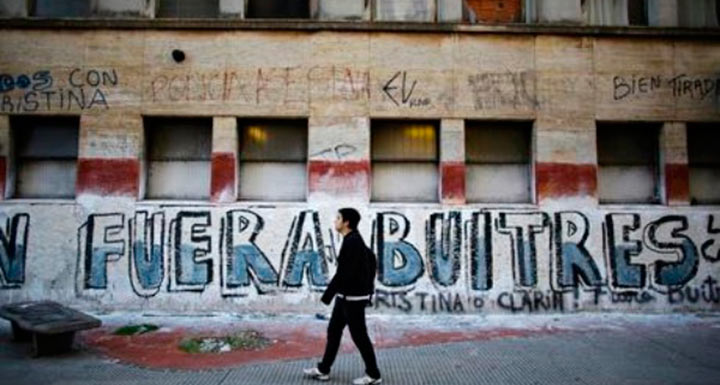
UN to debate international regulation on foreign debt
With the backing of the G77 + China, Argentina will propose an initiative which establishes a new legal framework for sovereign debt restructurings at the UN General Assembly in New York on Tuesday.
Foreign minister Hector Timerman will lead Argentina’s delegation this Tuesday in New York. It will participate in the debate at the United Nations on the establishment of a new legal framework for sovereign debt restructurings.
The drafting of a regulatory framework for the treatment of the debt of countries is an Argentine initiative which seeks to stop the onslaught of vulture funds and has the support of the G77 + China.
The central debate at the UN’s General Assembly this Tuesday will be the need for such a framework which will be put up for vote and if successful, the new scheme could be implemented in a year from now.
Argentina will present its proposal before December, according to Timerman. The project proposes that if a country restructures its debt and that plan is accepted by 66 percent of bondholders, the other 33 percent must accept these conditions, as occurs in any restructuring procedure in the private sector.
The G77 determined unanimously in late August to take the debate on foreign debt to the UN and to create a new convention for the treatment of the liabilities of countries, a topic that historically had been delegated by nations to agencies such as the International Monetary Fund.
However, the court case Argentina faces against vulture funds in the United States, plus the aftershocks of the 2008 global financial crisis which continue to cause grief around the world, have caused great concern amongst G77 member nations, which fear that the ruling by Judge Thomas Griesa could have a deleterious impact on other countries.
The debt of countries worldwide reaches a massive US$75 billion.
Following 12 years of litigation that Argentina has faced with the vulture funds, and after Argentina’s petitions to various international forums, including the G20 and the IMF, the G77 has stepped in, managing to move the debate to the UN with the argument that Griesa’s ruling could have serious and damaging socio-economic repercussions, placing the human rights of millions of people in jeopardy.
On the diplomatic front, many anticipate that the debate at the UN will be a heated one. While there is some general consensus that the vulture funds should be stopped from causing even more damage to the international community, there are countries that refuse the creation of a legal framework and prefer that the IMF stays on as the sole driving force in the matter of debt restructuring.
It is not yet clear what stance the U.S. will take on this matter. Minister Timerman has already said that Washington has shown an “ambivalent” attitude.
Argentina says that this proposal to the UN goes beyond it’s own conflict with the vulture funds
“This is a basic principle that we will not accept, especially as a country which has fulfilled its debt restructuring, which has kept to its International obligations, which has made a proposal which was massively accepted by its bondholders. We can not validate huge payouts which puts at risk the stability of a country, and not just Argentina, but any sovereign country of the world,” Argentine lower house representative of the governing Front for Victory party and economist, Roberto Feletti, explained to teleSUR. He was referring to the massive payout that the vulture funds are after – immediately and in cash – and some sectors of the opposition that demand that Argentina pay out straight away.
In what promises to be an intense week in Argentina’s struggle against the vulture funds, on Wednesday Argentina’s national congress is expected to pass the sovereign debt payment bill, which would grant Argentina more sovereignty over its foreign debt issues.

